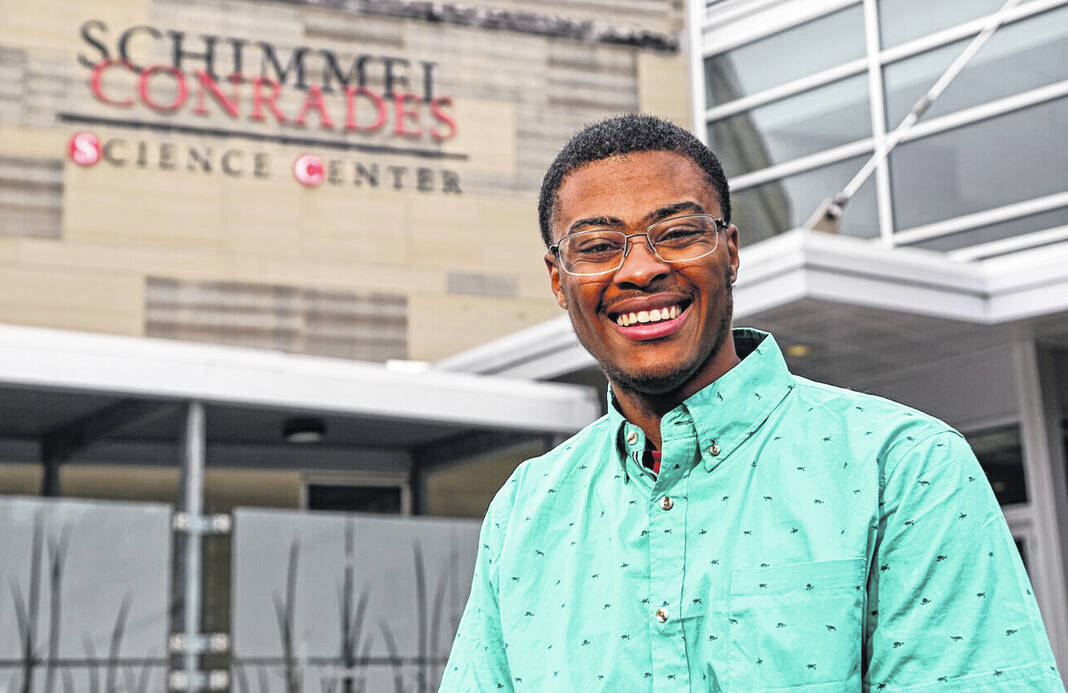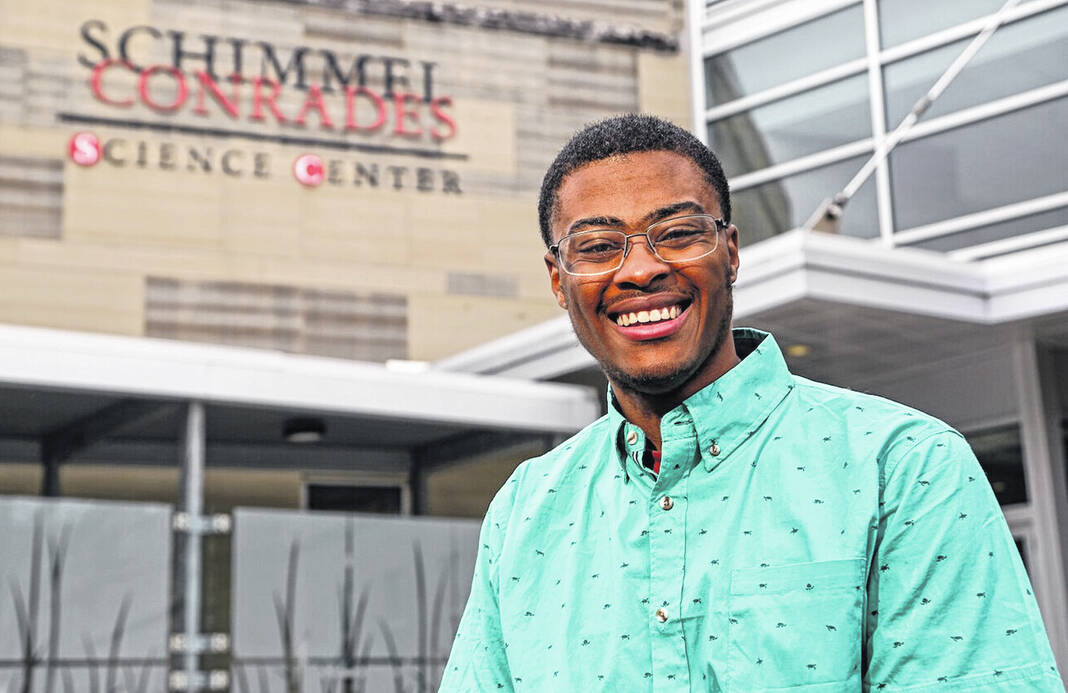

As an Ohio Wesleyan University sophomore, Princeton Vaughn began conducting research into the evolution and adaptation of common wall lizards. His early work even included building a lizard racetrack.
As an OWU senior, Vaughn has earned a competitive National Science Foundation (NSF) Graduate Research Fellowship to conduct related research when he enrolls this fall in Princeton University’s doctoral program in Ecology and Evolutionary Biology.
Vaughn’s five-year NSF fellowship includes three years of research stipends and tuition reimbursements totaling $138,000. With the national award, the Bowie, Maryland, resident joins a group whose members include 42 Nobel laureates and more than 450 members of the National Academy of Sciences.
At Ohio Wesleyan, Vaughn is a Zoology major and an Environmental Science and Music Performance double minor. In his sophomore year, Vaughn began working with Eric Gangloff, Ph.D., assistant professor of Biological Sciences, to study “how lizard body structure influences the way they run, climb, and cling in urban environments,” he said.
“That is part of what I will be doing with my NSF-sponsored research,” Vaughn said, “but I will be expanding it so that I can test how the rearing environment of anole lizards (small, iguana-like lizards) influences their body structure and their ability to run, cling, and climb effectively in different environments. …
“In very simple terms, I will study how lizard populations respond to urbanization and if similar species respond in similar ways to urban environments,” he said. “In a bit more complex terms, there is a phenomenon called phenotypic plasticity. Basically, this is the ability of organisms to change their bodies in response to the environment. …. For instance, do we see that lizards raised in urban environments are better at running and climbing on surfaces like concrete and metal?”
Vaugh said he learned a lot from working with professor Gangloff, who also served as his faculty mentor in writing the National Science Foundation fellowship and grant application.
“When we started working together, Dr. Gangloff had just started at OWU and had no lab infrastructure,” Vaughn recalled. “For me, this provided a unique experience in that it allowed me to carry out a project idea from initial inception to data collection to manuscript publication. Starting this project with no previous infrastructure was an ultimately rewarding experience, but proved challenging at first.
“One of the first technical challenges I encountered was building a lizard racetrack,” he said. “Unfortunately, lizard racetracks are not available on Amazon, so we had to buy the materials and build one from scratch. …
“By the time our first project was done and we submitted our manuscript for publication, we had more of a professional collaborator relationship,” Vaughn continued. “I was still his mentee, but I was at the level where we were able to bounce ideas off of each other more and more equally split the duties of research. Dr. Gangloff opened a lot of doors for me.”
After Vaughn earns his Ph.D., he hopes to “become a professor and mentor students the way that my mentors here have done for me.”
As for the rest of his Ohio Wesleyan experience, including his music studies, Vaughn said: “Throughout my time at OWU, I was lucky enough to pursue all of my passions. I feel like I walked the line between scientist and musician. … I am a singer and a guitarist, and I also took music composition lessons at OWU, which allowed me to discover how much I love writing music.”
He also has lived in the Tree House, an on-campus themed residence that allows up to 12 students interested in a common issue, such as the environment, to live together and share related information with the campus community.
Professor Gangloff said Vaugh has been “an absolute pleasure to work with” whose ideas have “pushed our lab’s work into new and interesting directions.”
“Princeton is such a smart, dedicated, creative young scientist,” Gangloff said. “This award will only help propel him further in the direction he’s heading. In the two-plus years that I’ve worked directly with Princeton, he’s published one first-author manuscript, plus one more we’ll submit soon. He’s also presented at the last two annual meetings of the Society for Integrative and Comparative Biology and received a grant from Midwest Partners in Amphibian and Reptile Conservation to support his work. … This award couldn’t be more deserved.”
Learn more about the NSF Graduate Research Fellowship program at www.nsfgrfp.org and more about studying Zoology at Ohio Wesleyan at www.owu.edu/biologicalsciences.


